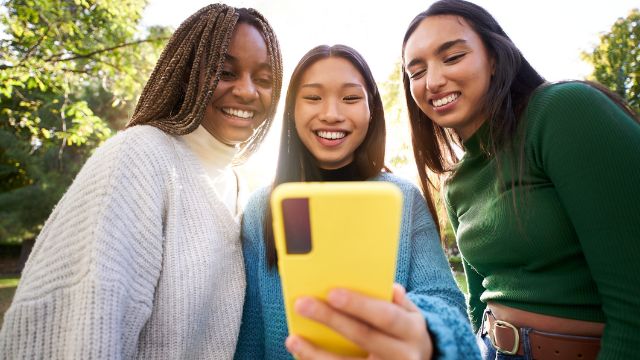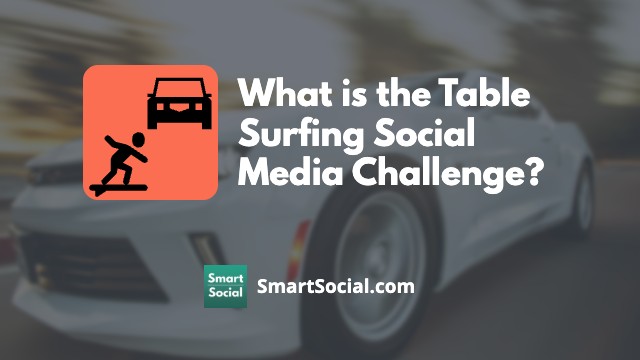Drugs on Social Media: What Parents & Educators Need to Look Out For
Green Zone App
(Click here to learn more)
Dangerous Social media challenge
(Click here to learn more)
Red Zone App
(Click here to learn more)
Gray Zone App
(Click here to learn more)
Parents must know that drug dealers are using social media apps to find and connect with their “customers.” In the last year 50% of teenagers report they have misused a drug at least once (Source: National Center for Drug Abuse Statistics).
New research shows that social media is increasingly being used by young people to buy drugs. The same apps that your students use every single day are making it easier for them to get access to illegal drugs. When parents know which apps have had issues, what hashtags are red flags to look out for, and how to have an open discussion with their kids about drugs on social media, they are better equipped to keep their children safe.
In this resource you will learn: 1) Tips for students to help watch out for their friends and 2) how parents and educators can help talk with their students if they recognize any of the signs of potential drug use.
What parents & educators need to know (video)
Examples of drugs on social media



Watch the Bermans explain their family's tragedy:
“We all think Snapchat is the place for kids to do what they want to do because it’s sweet where other kids are. But the reason the kids are there is because of the functionality that allows things to be ‘secret’... and that means dangerous.”
How do online drug sales happen?

"The Internet is probably the primary mechanism for drug dealers because using social media and smartphones to conduct business is far quicker and more efficient than methods of the past. The same privacy settings that are meant to protect users’ confidential information are also used by drug dealers to cover their tracks and render themselves invisible..." - American Addiction Centers
- Photos of drugs are posted with captions that include hashtags, emojis, and instructions on how to contact the dealer through encrypted messaging apps like Snapchat, WhatsApp, Whisper, or Kik. Dealers will discourage buyers from contacting them via direct message (DM)
- The transaction will take place on the encrypted messaging app. Buyers pay using services like Venmo and have the product shipped to them via USPS, UPS, and FedEx or they will meet the dealer in person and pay with cash
Dealers find ways around the rules
- Social media companies say drug deals are not allowed in their communities, but dealers still find ways around the rules
- Buyers and sellers often look for common hashtags and emojis to know who to connect with and then do so privately and on disappearing or multiple apps
- Social media sites often block, ban, or hide hashtags and emojis known to be connected to drug sales, but dealers still find ways to market their products and connect with users
View the SmartSocial.com Teen Slang, Emojis, & Hashtags Parents Need to Know (The Ultimate List) page for updates
Dealers use social media to look like “legitimate” businesses
The pop-culture blog, Complex, interviewed several drug dealers.

In the article, the dealers said they:
'I] post pictures and then decide who to serve based on customer behavior.' The dealers also said: ‘I try to appeal to pretty much anyone that ain’t too sketchy.’
Online predators also try to trick teens who may not be looking for drugs
- Predators can be tricky and work to build a “friendship” with students online. Then they may convincingly offer drugs that the student may not have been looking for
- Just like strangers in person on the street, we all have to be cautious about strangers we are also friending online
Illegal drugs often contain more than what the buyer thinks they are getting
Watch this news report from WFAA in Texas to hear what experts say illegal drugs likely contain and the consequences of those additives:
We have to look out for our friends
- Students, parents, and educators all have to work together to keep each other safe
- A “walk around the block for air” like Sammy said he was doing wasn’t the whole truth, but his friends had an idea of what he was doing
How do you know if your friend might be using drugs?
- Pay attention to the screenshots your friends send you. Are they trying to get you involved too?
- Some signs of drug use according to DrugFree.org:
- ~Shifts in mood & personality
- ~Sullen, withdrawn or depressed
- ~Deceitful or secretive
- ~Hyperactive or unusually elated
- ~Locks doors
- ~Disappears for long periods of time
- ~Goes out often
What can you do if someone you care about shows signs of drug use?
- The hardest step may be to remain calm. They won’t listen if they think you’re going to lose your temper or judge them
- Search resources online like drugfree.org or your school counselors for specific talking points and tips to confront someone
- Express how much you care about them no matter how much trouble they might be in
- Students: seek help from trusted adults if you think your friends are using drugs (even if it was just once, or they made you promise to not tell on them)
Hashtags that parents need to know about and monitor
Since a lot of networks try to ban hashtags that promote illegal activities, new hashtags pop up all the time but here are some we know (learn more on the SmartSocial Teen Slang, Emojis, & Hashtags Parents Need to Know (The Ultimate List)):
- #xansforsale
- #oxy
- #percocet
- #painkillers
- #painpills
- #oxycontin
- #adderall
- #painrelief
- #fentanyl
- #cocaine
- #heroin
Conclusion
We all need to have an ongoing dialogue with our friends about our futures, so we know these platforms/apps should be used with a positive purpose. We have to always remember what to say YES and NO to in life.
Additional Resources
Protect your family and enter for a chance to win cool prizes
Become a member or log in to learn more on this topic
Protect your family and enter for a chance to win cool prizes

., start learning from this page to earn points!*
Hello, I'm Josh, the founder of SmartSocial.com.
Don't leave this page until you fill out our feedback form that will appear after you learn from the resources...
Here are some of the latest resources at SmartSocial.com
Become a Very Informed Parent (VIP) to get our social media suggestions in your email every Tuesday & Thursday.



Hello, I'm Josh, the founder of SmartSocial.com. Protect your family by taking my 1 minute quiz
This quiz will help you understand how safe your family is


Schools & Districts: Partner with us to protect your community online
Our remote presentations (and website) teach over a million parents and students each year how to be safe so they can shine online. We teach students how their accounts can be used to create a portfolio of positive accomplishments that impress colleges and employers.


Join Our Smart Social Podcast
each week on iTunes
With over 500 episodes, Josh Ochs interviews psychologists, therapists, counselors, teachers, and parents while showing you how to navigate social media to someday shine online.
Listen on:



.jpg)
.jpg)

.jpg)


